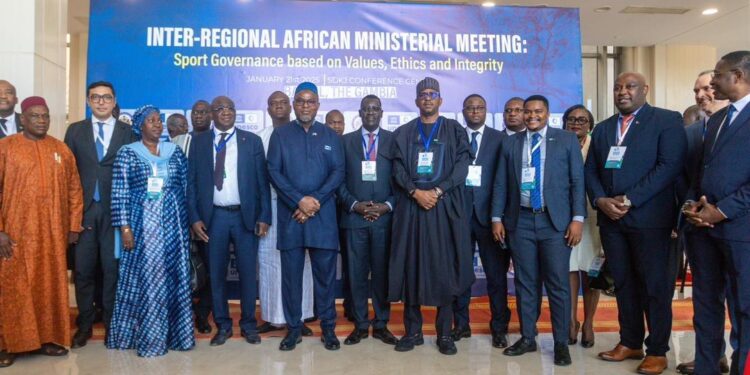By Israel Bulus, Kaduna
The Chairman of the National Sports Commission, Mal. Shehu Dikko, who’s one of the leading panelist at the Interregional African Ministerial Meeting in Banjul, Gambia, said the event would help enhance Nigeria’s sports economy.
The meeting was declared open by the Gambian President His Excellency Adama Barrow on Tuesday brought together ministers of sports from the African continent, the Bureau of the ninth session of the Conference of Parties (COP9) to the International Convention against Doping in Sport, representatives of African interregional organizations, as well as experts and key stakeholders.
The meeting tagged, “Leveraging Sport for Socio-Economic Development, Social Cohesion, and Peace” is aimed to consolidate a vision and strengthen cooperation at the regional level.
Dikko, expressed optimism that the event will help to strengthen the Commission’s efforts to actualize the Renewed Hope Initiative For Nigerian Sports Economy (RHINSE).
“We are taking a route that had never been taken before. The task of evolving the sports economy is one that will need collaborations and that is why we have been doing wide consultations and engagements with stakeholders.
” This meeting will enable us to further cross-fertilize ideas, compile notes with colleagues from other jurisdictions and create further collaborations within the continent and beyond in support of our work in delivering our mandate”
PUNCH reports, that the high-level forum, which brought together key stakeholders across Africa and beyond, focused on fostering inter-regional cooperation to enhance sports governance, values, and integrity.
Dikko, emphasized that his transformative potential of sports was to drive economic growth, uniting communities, promoting peace, reflecting Nigeria’s commitment to advancing regional and global sports development initiatives.











